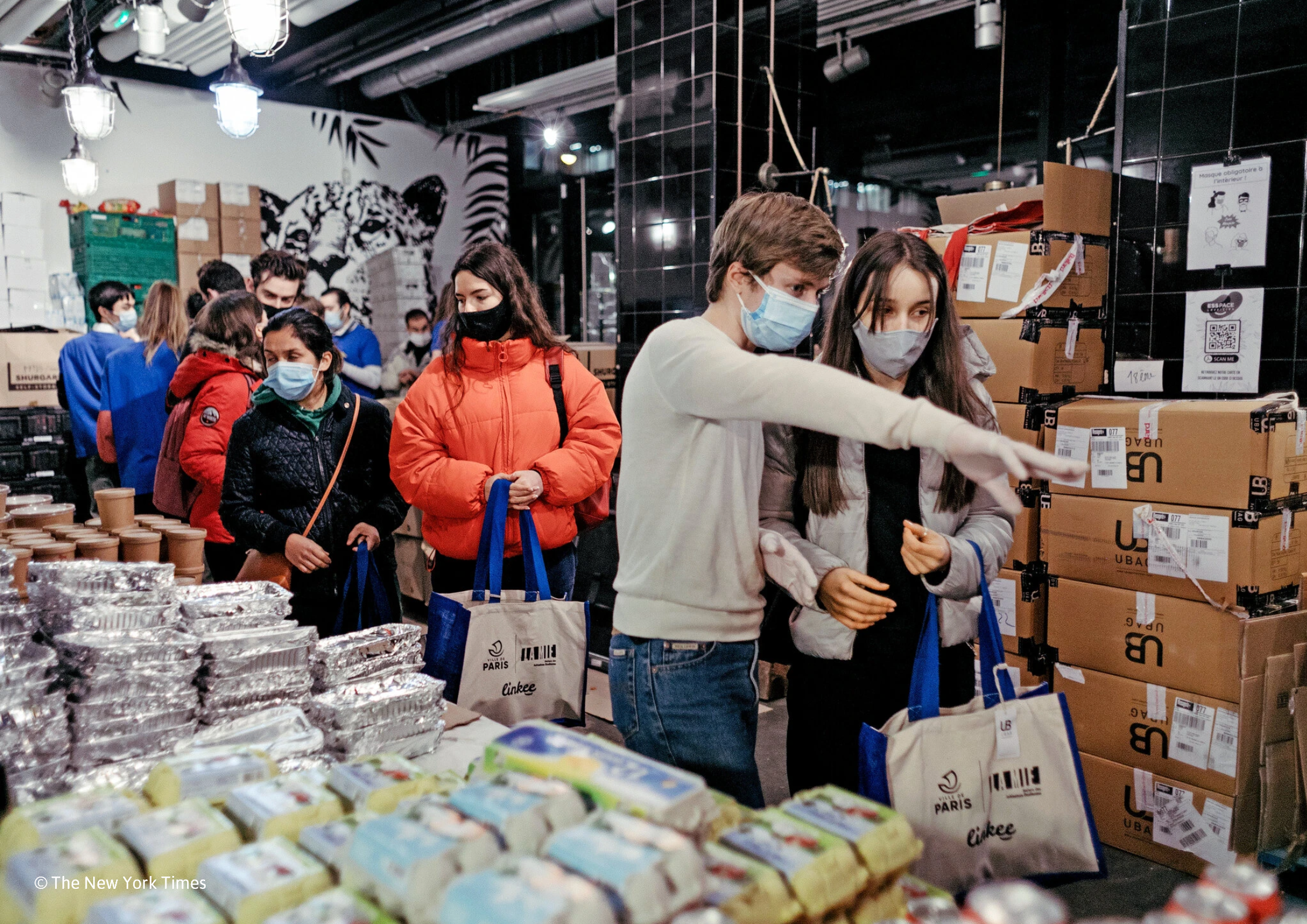The pandemic begins its second year and the reliance on food aid in Europe is surging. Aid organizations are warning of an alarming rise in food insecurity among young people. Food insecurity among students was already a reality before the pandemic. But national lockdowns, closing of campus and collapsing of the tourism and restauration sectors in which student usually are working are putting the pressure on this generation.
In France, Europe’s second-largest economy, half of young adults now have limited or uncertain access to food. Nearly a quarter are skipping at least one meal a day, according to le Cercle des Économistes, a French economic think tank that advises the government.
Aid organizations that mainly fed refugees, the homeless and people below the poverty line have refocused operations to also meet a surge in demand among youths. Over eight million people in France were searching for food aid in France, compared with 5.5 million in 2019. Food aid demand across Europe has surged by 30 percent, according to the European Food Banks Federation.
New initiatives are emerging as a reaction to this urgent need: food pantries run by student volunteers and delivering food and hygiene packages to other students. “Covid has created a deep and severe social emergency that has rapidly plunged people into hardship,” said Julien Meimon, president of Linkee, one of these nationwide food pantries that set up services dedicated to students who cannot get enough food.
Food pantries like these are a rare bright spot for students who are struggling to survive with the financial and psychological impact of the pandemic.
Read the full article of the New York Times here.




